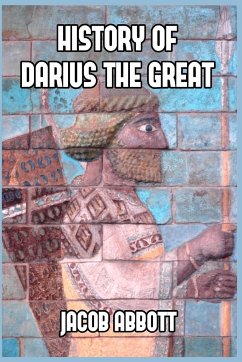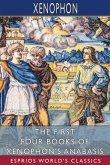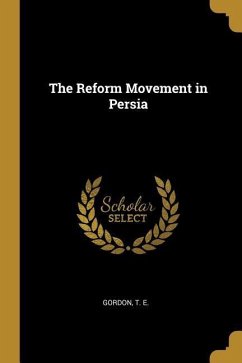The story of the founder of the Achaemenid, or the First Persian Empire, Darius I (c. 550-486 BC), is one of the best documented from that ancient time primarily because of a trilingual monumental relief on Mount Behistun which was written between the time of his coronation and his death. By drawing upon this record, and other primary sources, master storyteller Jacob Abbott takes the reader on a whirlwind account of a dramatic series of events in ancient Middle Eastern history. Filled with background tales of personal intrigue and shocking cruelty, the story follows Darius's ascension after the end of his grandfather Cambyses's reign, the difficult suppression of a series of internal revolts, the move of his seat of government to the world-famous capital city of Susa, and the expansion of his empire's borders from the Caucasus to the Indus. It also tells the story of his disastrous attempt to conquer the Scythians and the first and second attempts to conquer the Athenians-the first of which ended with the loss of his fleet, and the second in the decisive defeat of his army at the Battle of Marathon. Finally, the story of Darius ends during the revolt of his Egyptian provinces, and in the midst of preparations for a third assault on the Athenians. "The greatness of Darius was the greatness of position and not of character. He was the absolute sovereign of nearly half the world, and, as such, was held up very conspicuously to the attention of mankind, who gaze with a strong feeling of admiration and awe upon these vast elevations of power, as they do upon the summits of mountains, simply because they are high." Cover image: A frieze from the palace of Persepolis, an "Archer of Darius."








